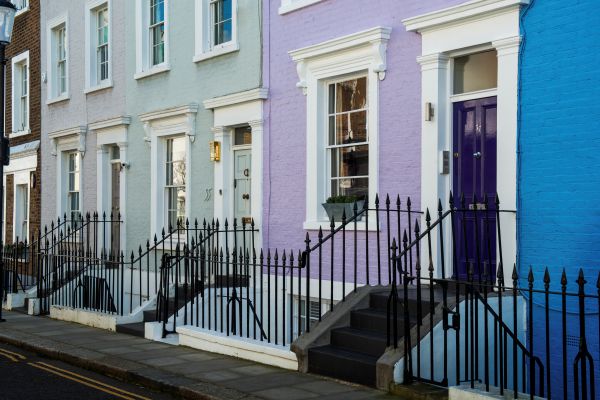
Buying a new home, whether it is your first or you are relocating, is a significant decision. It involves substantial costs. To be fully prepared, you must equip yourself with the necessary information. This includes budgeting accurately and understanding all associated expenses. Mastering new home mortgage costs is crucial. Additionally, you must pay several fees and charges before taking possession of your new property.
Setting a realistic budget is fundamental when buying a new home. Your budget should cover the home’s purchase price. Also, other significant expenses such as property taxes, homeowner’s insurance, and maintenance costs should be considered. When mastering new home mortgage costs, remember that your monthly mortgage payment is just part of the financial puzzle. Assess the big picture to avoid unexpected financial strain in the future.
What are the associated costs?
When it comes to Mastering New Home Mortgage Costs, you must understand the various expenses involved in buying a home. These costs can be categorised into four main sections, each crucial in your homebuying journey.
The Deposit: This is typically the first significant payment you must make when purchasing a new home. It is a deposit towards your property and is often a percentage of the total property cost. The exact amount can vary depending on the mortgage lender and the loan-to-value (LTV) ratio. Typically, deposits range from 5% to 20% of the property’s total cost. Saving for a substantial deposit can significantly impact your ability to secure a favourable mortgage deal and reduce long-term mortgage-related expenses.
Pre-Completion Expenses:
Several pre-completion expenses must be considered before purchasing your new home. These include solicitors’ fees and stamp duty. Solicitors ensure the legality and smooth transfer of ownership, while stamp duty is a tax levied by the government on property transactions. These costs are essential to consider during homebuying and should not be overlooked.
Mortgage-Related Costs:
Securing a mortgage involves several expenses you must know of. These include the lender’s valuation fee and any administration charges related to your loan. Once the purchase process is complete, you may also have to cover surveyor fees and lenders’ insurance. These costs can add up, so it’s crucial to research and compare mortgage offers to minimise expenses thoroughly.
Mortgage Broker Fee:
If you enlist the services of a mortgage broker to help you find, advise, and arrange your mortgage, you should be aware of potential fees. Some brokers may not charge you a direct fee but may receive a commission from mortgage providers. On average, you pay between 0.3% and 1% of the loan amount for a broker’s services, depending on the complexity of your mortgage application. Understanding how your chosen broker is compensated is essential to make an informed decision.
Post-Completion Expenses:
Even after you’ve become a homeowner, there are ongoing costs to consider. These include solicitor’s fees for transferring ownership and registering your new property with the Land Registry.
 You should also budget for potential removal costs associated with moving into your new house. Additionally, you may need to invest in furniture or other home improvements to make your new house feel like home. These post-completion expenses are often overlooked but can impact your overall budget.
You should also budget for potential removal costs associated with moving into your new house. Additionally, you may need to invest in furniture or other home improvements to make your new house feel like home. These post-completion expenses are often overlooked but can impact your overall budget.
Mastering New Home Mortgage Costs involves a comprehensive understanding of the deposit, pre-completion expenses, mortgage-related fees, and post-completion expenses. By carefully planning and budgeting for these costs, you can confidently navigate the homebuying process and minimise financial surprises along the way.
Mortgage-specific costs

Starting in March 2016, mortgage lenders must include fees like redemption and valuation fees in the APRC. This annual percentage rate of charge reflects additional costs, ensuring transparency for borrowers. These costs appear on mortgage comparison websites as ‘overall cost for comparison.’ Understanding these fees is crucial for managing New Home Mortgage Costs effectively.
Including these fees in the APRC calculation ensures borrowers can make informed decisions when comparing mortgage products. It helps navigate the complex world of mortgages and minimises unexpected financial surprises. Review the key facts it illustrates when finalising a mortgage agreement with a lender.
This document should outline all associated costs, including New Home Mortgage Costs, making evaluating the mortgage’s true affordability easier. Understanding these costs is essential in managing finances and preventing your mortgage from becoming a financial burden. By mastering these expenses, you can make a well-informed decision that aligns with your financial goals.
Whether you’re a first-time homebuyer or a seasoned homeowner, it’s crucial to comprehend and plan for these costs. Doing so can significantly impact your mortgage experience and secure your financial future.
Arrangement fee
Mastering New Home Mortgage Costs is essential for securing a mortgage and understanding its various fees. Let’s explore the crucial fees borrowers should know when navigating the mortgage landscape.
Firstly, borrowers encounter the arrangement fee, which lenders charge to cover administration costs. This fee can range significantly from £0 to £2,000. Various factors influence it, including the mortgage size and the type of mortgage product you choose.
Arrangement fees differ based on whether you select a tracker or fixed-rate product. Understanding these differences helps you decide which suits your financial goals. A tracker mortgage links to the Bank of England’s base rate, causing your interest rate and arrangement fee to fluctuate with market conditions. In contrast, a fixed-rate mortgage offers stability by locking your interest rate for a predetermined period, typically two to five years. This stability is beneficial when budgeting for your mortgage costs.
Booking fee
Next, consider the booking fee, also known as a completion or product fee. This fee covers administration costs associated with your chosen mortgage product. Booking fees usually range from £500 to £2,000 and can significantly impact your overall mortgage expenses.
Notably, you can include the booking fee in the total mortgage cost. However, this option requires caution, as it may result in paying additional interest over the loan’s life. Therefore, it’s advisable to carefully weigh the pros and cons of including the booking fee in your mortgage.
In your journey to homeownership, mastering mortgage costs involves understanding interest rates and principal amounts and knowing the various fees involved. You can make informed decisions by considering factors like arrangement and booking fees and the type of mortgage product that suits your needs. This approach ensures a smooth transition into your new home and aligns with your financial goals.
Booking fee
Some mortgage lenders might include it in the overall arrangement fee, typically ranging from £99 to £250.
You must pay the fee when you submit your application.
Valuation fee
Understanding “Mastering New Home Mortgage Costs” is essential when applying for a mortgage. The lender will evaluate your property’s value to ensure it is worth the amount you wish to borrow. This process is called a valuation survey, typically costing between £250 and £500. The survey only assesses the property’s value, not any potential issues or repairs.
Moreover, remember that larger, more expensive properties incur higher valuation fees. Therefore, understanding these costs helps you budget effectively. You must pay this fee to the lender when you apply for the mortgage. Additionally, you may have to pay an extra valuation administration fee of about £50 to £100.
Lenders charge this fee to ensure they can repossess the property if you cannot repay the loan. Furthermore, they use the fee to demonstrate the property’s value at the time of purchase. This can aid in the property’s sale if necessary.
Therefore, as you embark on your homeownership journey, “Mastering New Home Mortgage Costs” is crucial. It helps you make informed financial decisions and avoid unexpected surprises.

Mortgage account fee
The fee you’re being charged covers the administration costs incurred by the lenders for setting up, managing, and closing your mortgage. This fee can be in lieu of an exit fee and usually ranges from £100 to £300.
Telegraphic transfer/Chaps payment fee
The fee is for the mortgage lender to transfer funds to your solicitor. Unfortunately, it’s typically not refundable, so you likely won’t receive a refund if your purchase doesn’t go through.
Fee for independent building insurance
Although some lenders no longer charge for it, others may still charge a fee if you opt for your own building insurance rather than the one provided by your mortgage lender. The fee, if applicable, is typically £25.
Higher lending charge
This may affect borrowers with a small deposit. It serves as insurance for the lender if you cannot make the mortgage payments and the property has to be sold at a loss. The fee is charged if you have a high loan-to-value (LTV) ratio. The fees may vary depending on how the lender evaluates the risk, but it may reach up to 1.5% of the borrowed amount.
Missed mortgage payments
Your lender may charge a fee if you fail to pay a mortgage. Consequently, your account may become delinquent. This can cause additional trouble with your bank. Each lender has its own rules about charging fees. However, if you miss several payments, your home could be repossessed.
Early repayment charges

Understanding the rules and limitations is crucial when managing your mortgage payments. “Mastering New Home Mortgage Costs” involves regular instalments and exploring extra payments to save money.
If you miss a payment or overpay, you may face charges. Lenders earn money through interest and fees over your mortgage term. They often restrict extra payments to maximise their earnings.
Some lenders charge for overpayments, while others don’t. Knowing how much extra you can pay is essential for financial planning. An illustration of the key facts from your lender will provide these details.
Many mortgage agreements allow overpayments of up to 10% of the outstanding amount annually. However, verify this with your lender, as penalties can be strict. Penalties range from 1% to 5% of the early repayment amount.
This cost varies depending on how soon you exit your mortgage deal, the balance, and the overpayment amount. Also, remember that similar fees apply if you exit early or switch lenders before your deal ends.
These costs depend on your departure timing, the outstanding balance, and the overpayment amount. Therefore, “Mastering New Home Mortgage Costs” involves more than extra payments. It’s also about understanding terms and conditions to make informed decisions.
Legal fees
When you buy a new home, you must pay your solicitor for their services. This includes conveyancing, ensuring accurate paperwork, and handling all legal tasks. They may also charge around £250 for local searches to check for potential issues that could impact your move.
Surveyor costs
Understanding fees associated with property purchases is crucial. One common misconception is that valuation and survey fees are the same. They serve distinct purposes in home-buying.
The valuation fee confirms the property’s existence and aligns with the loan amount. This fee is often mandatory for mortgage applicants. However, it primarily safeguards the lender’s interests. It ensures the property is worth the loan they extend.
Conversely, the survey fee involves a comprehensive inspection by a chartered surveyor. This inspection examines the property’s condition in detail. It identifies potential issues not visible during a routine valuation. Issues can include structural problems, dampness, and flood risks. The survey provides insights to help you decide whether to purchase the property.
Mastering New Home Mortgage Costs is critical when using the survey as a negotiation tool. You can negotiate a lower purchase price if the survey finds significant property issues. This can save you money and ensure a sound investment.
While not always mandatory, obtaining a survey is strongly advised when buying a new home. Failing to do so may limit your options for addressing future issues. This can lead to costly repairs or renovations later.
To make it convenient, request your lender to upgrade the basic valuation report to a complete survey during application. Bundling the survey cost with your mortgage is often more cost-effective.
There are three types of surveys available to home buyers:
Home Condition Survey:
This is the most budget-friendly option. It is ideal for new homes and provides a basic overview of the property’s condition. It helps identify any immediate concerns.
Homebuyer’s Report:
For a more thorough assessment, consider the Homebuyer’s Report. It covers the interior and exterior of the property and includes a valuation. This report helps you understand the property’s condition comprehensively.
Building or Structural Survey:
Opt for the Building or Structural Survey for older properties or those with unique features. The most comprehensive option offers an in-depth analysis of the property’s structural integrity and potential issues.
Survey costs vary based on detail level. Expect to pay between £300 and £900, depending on the lender’s valuation payscale. Investing in a detailed survey provides peace of mind and can save significant expenses. This makes it a wise choice when Mastering New Home Mortgage Costs.
Building insurance fee
Stamp duty
Paying Stamp Duty is a significant expense when purchasing a new home. Understanding its implications is crucial, especially after the changes made in April 2016. These changes have significantly impacted buy-to-let investors and individuals looking to buy a second home.
This article will explore Stamp Duty in more detail and discuss strategies for managing new home mortgage costs. This can help you navigate this financial challenge.
Stamp Duty, simply put, is a tax imposed by the UK government on land and property transactions. When you purchase a property, you are required to pay this tax. Your solicitor calculates and submits the payment to HMRC once the property purchase is finalised.
Let’s break it down to give you a better idea of how Stamp Duty works. If the property you buy is valued at £125,000 or less (or £40,000 for a second property), you won’t have to pay any Stamp Duty. However, as the property’s value increases, the Stamp Duty percentage starts to kick in. It becomes essential to factor this into your budget.
The calculation
For instance, if your chosen property falls within the £125,001 to £250,000 price range, you will be charged a 2% Stamp Duty. As the property’s value continues to rise, so does the Stamp Duty percentage. Homes priced between £250,001 and £925,000 incur a 5% Stamp Duty. Properties valued from £925,001 to £1.5 million are subject to a 10% Stamp Duty. If you consider purchasing a property worth more than £1.5 million, be prepared for a 12% Stamp Duty.
 Mastering new home mortgage costs involves careful financial planning and understanding all associated expenses, including Stamp Duty. Consider various strategies to minimise Stamp Duty’s impact on your budget. These include negotiating the property price, exploring government schemes offering exemptions or discounts, and seeking expert advice from mortgage advisors and tax professionals.
Mastering new home mortgage costs involves careful financial planning and understanding all associated expenses, including Stamp Duty. Consider various strategies to minimise Stamp Duty’s impact on your budget. These include negotiating the property price, exploring government schemes offering exemptions or discounts, and seeking expert advice from mortgage advisors and tax professionals.
While Stamp Duty can be a substantial expense, it’s an integral part of the home-buying process in the UK. Being well-informed and implementing effective strategies can make a significant difference. With the right approach, managing your expenses and ensuring a smoother transition into your new home becomes easier.
Conveyancing
If you want your lender to cover the legal fee, you may need to select a solicitor from their approved list, or they may offer you cashback instead.
First, however, you must ask for the lender’s permission to use your solicitor.
Remember that the solicitor will handle legal work for you and the lender.
The cost is around £1,000 to £1,500. You’ll need to pay for the solicitor’s services at different stages.
Land registry fee
One aspect often overlooked is the Land Registry fee for mastering new home mortgage costs. This fee is crucial in the property purchasing process. It involves transferring the property’s registration entry from one owner to another. Despite its importance, the Land Registry fee is relatively low compared to other expenses.
Let’s delve into the specifics. If the property you’re buying falls under £80,000, the Land Registry fee is £40. Conversely, if you’re investing in a high-value property sold for £1,000,001 or more, set aside £910 for this fee. Note that your solicitor will typically handle this payment for you upon completion of the property purchase.
Why is it crucial to be well-informed about such fees when buying a new home? It’s because purchasing a property isn’t just about the price. To master the costs of your new home mortgage, consider various charges beyond the Land Registry fee. Legal fees, stamp duty, and other miscellaneous costs all come into play.
To ensure a smooth transition into homeownership, understand these different charges and factor them into your budget. By doing so, you’ll be better prepared for the financial commitments of buying a property. Being budget-savvy and mindful of these expenses allows you to make well-informed decisions, safeguarding your financial stability in the long term.
 But don’t navigate this journey alone. Seek professional advice from mortgage advisers and solicitors who are well-versed in the intricacies of the purchase process. Their expertise will be invaluable in helping you navigate the maze of costs associated with your new home mortgage. With the right knowledge and guidance, you can confidently move forward. Know that your finances are secure as you embark on this exciting homeownership journey. Mastering new home mortgage costs is crucial to achieving your dream of owning a new property.
But don’t navigate this journey alone. Seek professional advice from mortgage advisers and solicitors who are well-versed in the intricacies of the purchase process. Their expertise will be invaluable in helping you navigate the maze of costs associated with your new home mortgage. With the right knowledge and guidance, you can confidently move forward. Know that your finances are secure as you embark on this exciting homeownership journey. Mastering new home mortgage costs is crucial to achieving your dream of owning a new property.
Thank you for reading our publication “Mastering New Home Mortgage Costs | No.1 Sensational Guide.” Stay “Connect“-ed for more updates soon!






